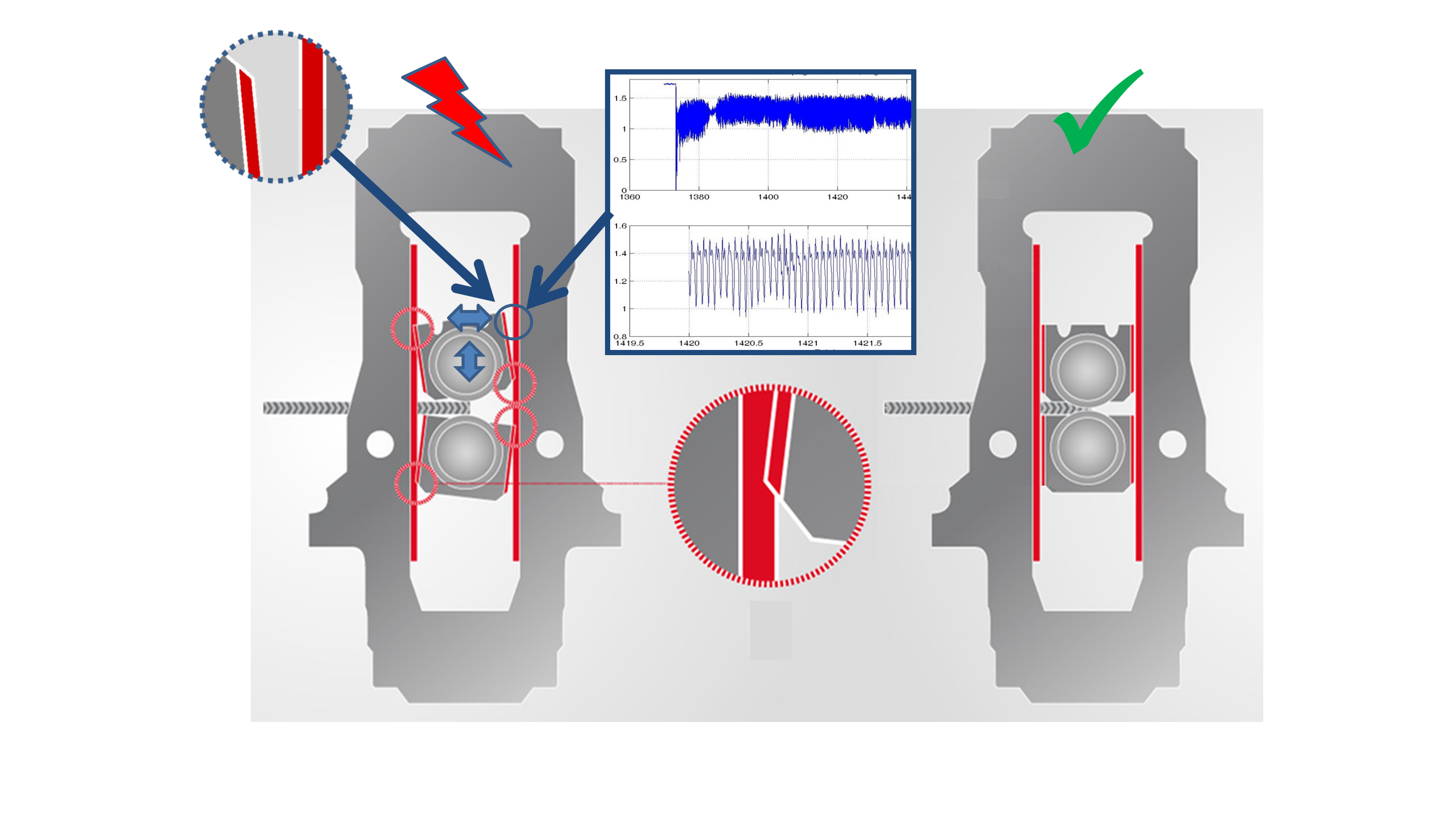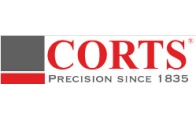FlexGap – Industrial demonstration of novel adaptive flat bearing

With more and more need for high-strength-steel the rolling-mills have to be expanded to deal with the resulting higher rolling-forces. An effect of this is the greater constriction of the rolling-stand. Therefore the flat-bearings, guiding the chocks, have to be designed thinner to avoid clamping. On the other hand, while rolling lower-strength-steel, these thinner flat-bearings cause worse guidance of the rolls, higher wear and greater oscillation tendency that allows self-excited vibrations to build up a high magnitude. This effect is known as chattering and can cause strip-breakage. A common reaction to this is to lower the speed of the rolling-mill which results in a reduced productivity of the plant.
In response to this trend a new adaptive flat-bearing was developed. The expected benefits of the new adaptive flat-bearing are on-line adaptation of a minimal bearing-gap, on-line adjustment of the roll-offset, dumping of self-excited vibrations and a possible use as an additional flatness-actuator.
Aims of the project:
- Better process-guiding for all Strengths.
- Minor oscillation tendency.
- Dumping of chattering vibrations without the need of speed reduction.
- Minor wear due to more parallel planes inside the bearing-gap.
Steps to carry out the project:
- Initial setup.
- Development of needed controls.
- Test of expected benefits.
Benefits for the industrial partner:
- Higher productivity due to the avoiding of speed-reduction.
- Lower maintenance costs.
partners
Funding reference
Your contact person

42 Moritz Loos, M.Sc.
+49 211 98492-242
moritz.loos_at_bfi.de





